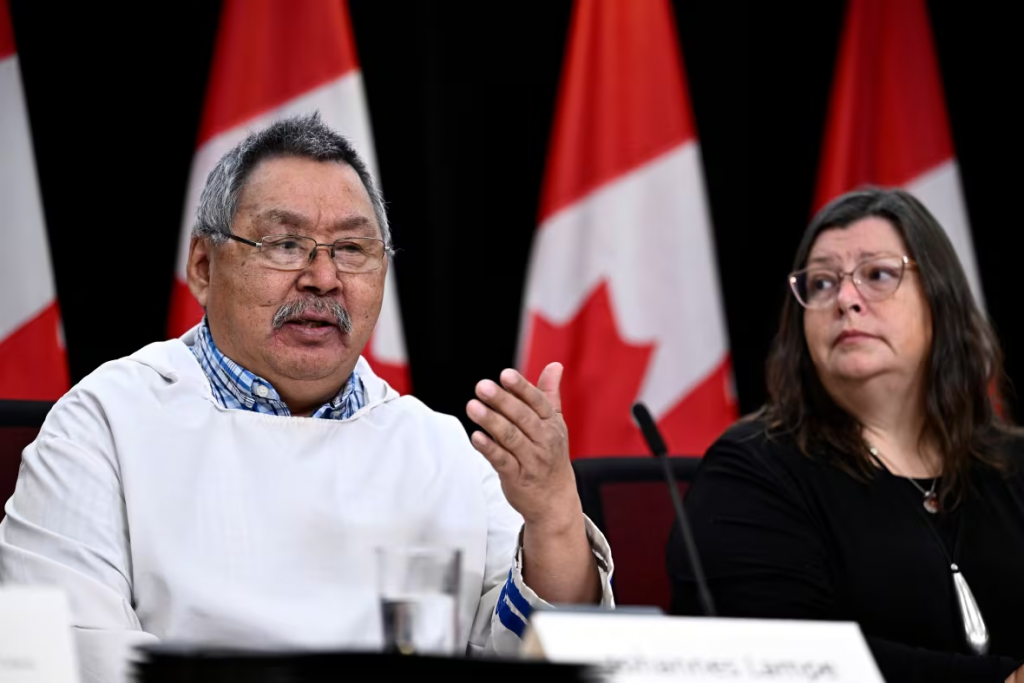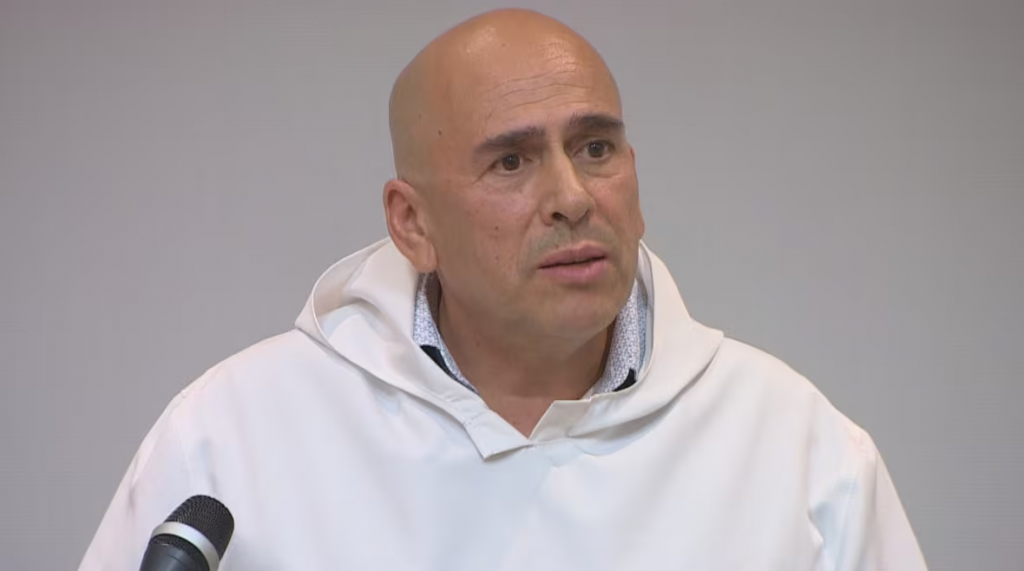NunatuKavut art ceremony in N.L. legislature sparks criticism from Nunatsiavut, Innu Nation

Nunatukavut Community Council responds with letter calling on them to ‘end their defamatory actions’
Nunatukavut Community Council (NCC) says it has issued a cease-and-desist letter to leaders of the Nunatsiavut Government and Innu Nation, after the two criticized the unveiling of artwork by an NCC member in the Newfoundland and Labrador legislature being called a celebration of Indigenous identity.
In a statement that didn’t address the controversy, the Office of Indigenous Affairs and Reconciliation for Newfoundland and Labrador said the artwork is part of an Indigenous art initiative started in 2022.
It joins pieces from Nunatsiavut, Innu Nation, Miawpukek First Nation and Qalipu First Nation, and a Beothuk statue on display in the building.
“Its purpose is to honour and showcase Indigenous cultures within provincial buildings, creating space for visibility and respect,” said the statement.
NCC’s 6,000 members self-identify as Inuit in southern and central Labrador. The Nunatsiavut Government, representing recognized Inuit in northern Labrador, and Innu Nation, comprising two First Nations communities in Labrador, dispute these claims that haven’t yet been validated by any federal recognition process. National Inuit organization Inuit Tapiriit Kanatami also doesn’t recognize NCC as having legitimate claims to Inuit identity.
Shortly after the ceremony unveiling the textile piece Sept. 2, Nunatsiavut Government and the Innu Nation released a joint statement.
The groups said the event misrepresented “the legal status of NCC and undermines the legitimacy of Indigenous governments, organizations and entities” and they called for the province to “stop distorting Indigenous representation.”
“This is not simply about art,” said Nunatsiavut President Johannes Lampe in the statement.

“It’s about truth. When governments choose to misrepresent who we are and what we’ve fought for, they erode the very foundation of reconciliation. Labrador Inuit have worked hard for many years to have our rights recognized. True reconciliation requires honesty, accountability, and collaboration with legitimate Indigenous governments and organizations.”
Innu Nation Grand Chief Simon Pokue said in the statement he was disappointed the province “continues to ignore the concerns of legitimate Indigenous peoples in Labrador and across Canada.”
“It is not the role of the province to act as a surrogate for a group making false claims to be Indigenous.”
A representative of the Nunatsiavut Government said as the matter has been referred to the group’s lawyers, they’re unable to speak on the issue at this time.
Cease-and-desist letter
In a statement last Wednesday, NCC President Todd Russell said the organization had issued a cease-and-desist letter to both groups demanding they “immediately end their defamatory actions against our people.”
“We have consistently affirmed our Inuit identity and ancestry, which are well-documented and supported by the evidence, the facts and the law,” said Russell’s statement.

“Our Memorandum of Understanding [MOU] with the Government of Canada has been upheld, and both the Courts of Newfoundland and Labrador and the Federal Court of Canada have recognized the credibility of our rights assertions.”
Last year a Federal Court judge ruled the MOU did not recognize NCC as an Aboriginal people under section 35 of the Constitution and that the MOU is the beginning and not the end of a process though which NunatuKavut may or may not be recognized as belonging to the Indigenous peoples of Canada.
When contacted for comment, NCC directed CBC Indigenous to its legal representatives, who did not respond to a request for comment before time of publishing.
Related stories from around the North:
Canada: Memorial University won’t recognize NunatuKavut in new Indigenous verification policy, CBC News
Finland: Sami NGO demands removal of “Far Northern Attire” from Square Enix’s Final Fantasy, Eye on the Arctic
Norway: Certification marks help both Sami artisans and consumers, says council, Eye on the Arctic



